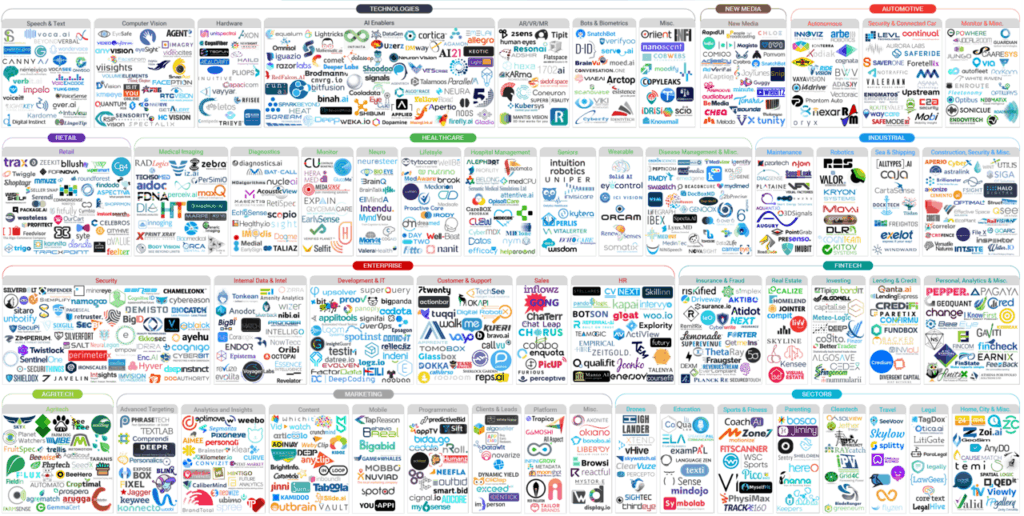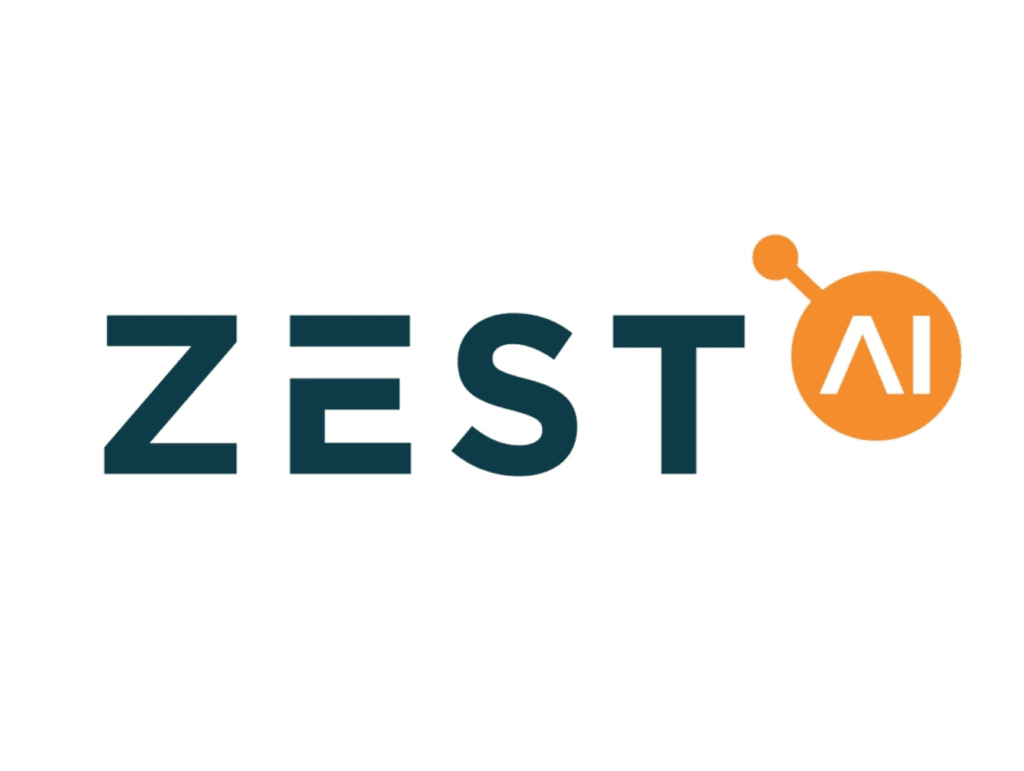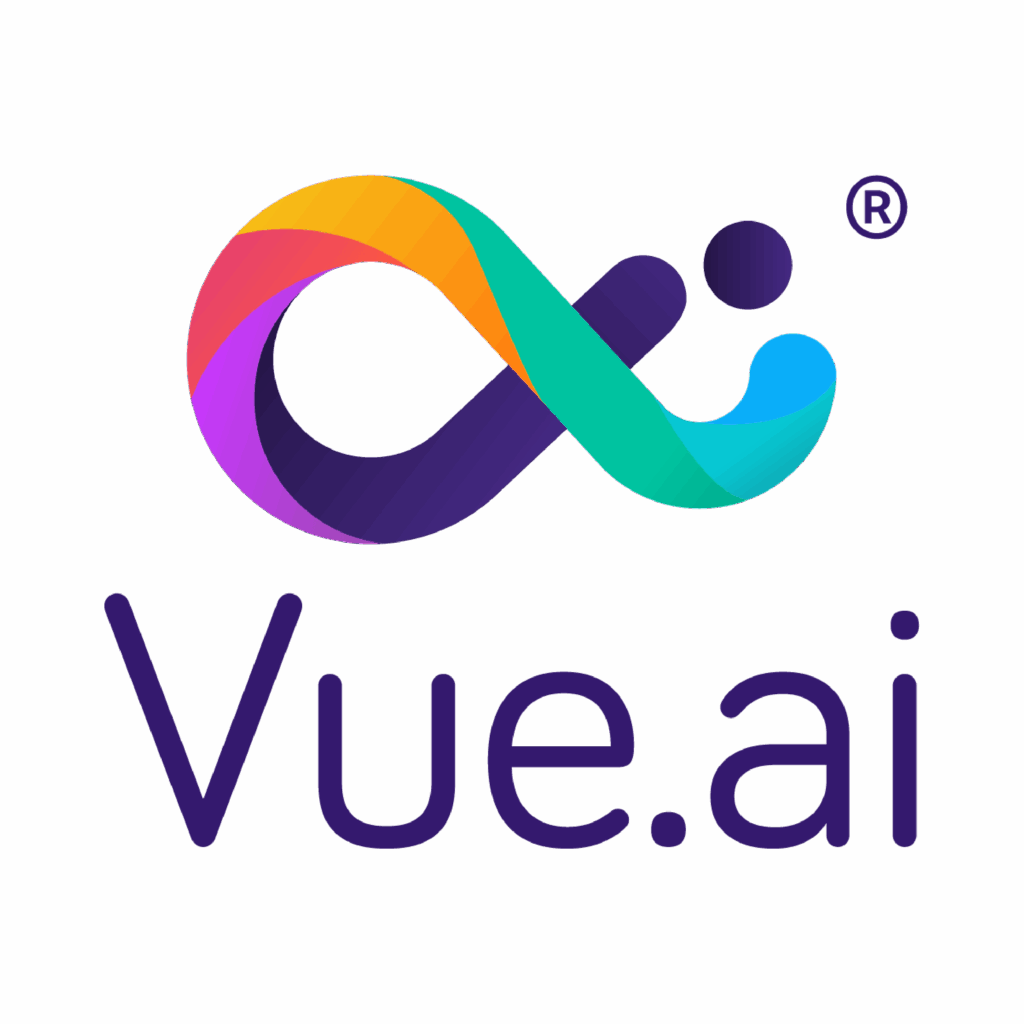Table of Contents
What Are AI Powered Startups? 🌻
Startups move fast. They solve problems in new ways. Some of the most exciting ones today use artificial intelligence.
AI powered startups are small companies that use AI to build smarter tools. They don’t just copy old systems. They create better ones. These startups use AI to speed up work, cut errors, or spot patterns that humans might miss.
AI stands for artificial intelligence. It means software that can learn, decide, or improve without being told exactly what to do. It can sort data, talk to users, or even make decisions. AI can help computers think more like people.
Why is this big now? Because AI is easier to use than ever. Just five years ago, only large tech companies could afford it. Now, even a small team can build an AI product. Open-source tools like TensorFlow and APIs from companies like OpenAI give anyone access.
One young founder in India did just that. He built an AI app that spots plant diseases. Farmers snap a photo, and the app shows the problem. It works in seconds. It helps farmers act fast and save crops. This kind of tool used to take weeks of lab testing. Now it takes a few taps.
That’s the power of AI in the hands of a startup.
AI powered startups often focus on one problem. They go deep into a narrow field. This focus lets them fine-tune their models and improve fast.
Here’s a health care example. A startup uses AI to scan X-rays. The system can find signs of disease faster than a trained doctor. It doesn’t replace the doctor, but it helps spot things early. This can save lives. It also saves time for hospitals and clinics.
Most AI powered startups use one or more types of AI. These include:
- Machine learning (ML): Systems that learn from data
- Natural language processing (NLP): Tools that understand human language
- Computer vision: Software that “sees” and analyzes images or video
- Predictive analytics: AI that spots patterns and makes guesses about the future
These tools can run behind the scenes. You might not even notice when AI is at work. But it’s there—filtering spam, helping customer service, or checking credit scores.
Startups love AI because it scales. Once trained, an AI system can handle more users without extra cost. This means a small team can do the work of a much bigger one.
Also, AI doesn’t sleep. It runs 24/7, giving answers, scanning files, or watching for problems. For founders, this means their product works even when they don’t.
But AI alone is not the magic. What matters is how it’s used. Good startups match AI with real problems. They don’t just use AI to sound smart. They use it to solve pain points for users.
Let’s say a company wants to cut support costs. An AI chatbot that gives clear answers can do that. Or say a school wants to help kids read. An AI tutor can spot where a child struggles and give help right away.
This is where startups shine. They find gaps that big firms miss. They act fast. They take risks. And with AI, they can do more with less.
In short, AI powered startups are small teams using smart tools to build real solutions. They’re not chasing hype. They’re solving problems. And they’re doing it faster, cheaper, and often better than anyone thought possible just a few years ago.
Why Founders Are Turning to AI ↗️

Founders want to move fast. They want to build, test, and improve without wasting time. That’s one big reason they’re choosing AI.
AI makes things quicker. It does jobs that used to take hours—or days—in minutes. It can write text, sort files, answer questions, or even make choices. What once needed a full team now runs on a single tool.
Speed matters at the start. Most startups don’t have many people. They don’t have time to waste. AI helps them build faster and smarter.
It also helps them cut out busywork. A founder can set up an AI to answer emails or sort customer feedback. That frees time to focus on the product.
This is where efficiency comes in. AI can clean up data, spot errors, or write code. It doesn’t just save time. It makes work better.
Then there’s automation. Founders no longer have to build every system by hand. Many tasks now run in the background with little help. AI tools can send follow-up emails, tag photos, or detect bugs. These are small tasks—but they pile up fast.
By automating early, startups can stay lean. They don’t need to hire large teams. They keep costs low and results high. That’s a huge win, especially in the first year.
Another reason founders are turning to AI is access. It’s no longer locked behind big companies or elite labs. Now, anyone can try it.
Free or low-cost tools are everywhere. You’ve got ChatGPT, TensorFlow, Hugging Face, and many others. These tools help with writing, coding, and data work. Most are open-source. You don’t even need to download anything—just log in and start.
You don’t need a PhD to use them, either. Many tools work out of the box. They come with examples, guides, and help forums. Some don’t even need code. You type what you want, and the tool does it.
This low barrier changes everything. It means a solo founder or a small team can build something useful fast. They don’t have to wait for funding. They don’t have to find a big team. They can just start.
This shift opens the door for more people. A teacher, a designer, or a marketer can now use AI in their startup. They can solve problems in their own fields. They don’t need to be tech experts.
And the speed is real.
Before, building a working prototype could take six months. Now, with the right AI tools, you can build one in two weeks—or even less.
Founders now test ideas faster. They learn what works. They change direction if needed. All without spending too much.
Take a simple example. A founder wants to create a writing app. Ten years ago, they’d need a team of developers and natural language experts. Today, they can plug into ChatGPT’s API, design a simple interface, and launch a working demo in days.
That’s not theory. It’s happening now. People are building tools for health, writing, image editing, and customer service—on their own, using AI.
AI is also helping with things outside the product. Founders use it to write job ads, polish pitches, or plan content. Some even use AI to write business plans or analyze market data. It’s not perfect, but it saves hours.
The shift is clear. Founders are turning to AI for speed, automation, and ease of use. They don’t need big budgets. They just need ideas and the will to build.
AI gives them the power to test those ideas fast. To fix problems early. To grow without growing their teams too soon.
It’s not about doing everything. It’s about doing the right things—faster.
That’s why AI isn’t just a tech trend. It’s a startup tool. One that’s changing how founders build from day one.
Industries Being Disrupted by AI Startups 🏭
AI isn’t just for tech companies. It’s changing old industries too. Startups are leading the way. They’re using AI to fix broken systems, improve results, and lower costs. Let’s look at five areas where the shift is clear.
▪️Healthcare
Healthcare is getting smarter with AI. Startups now use it to help doctors, not replace them.
Some AI tools scan images. They help spot disease early. Others track patients in real time. They watch heart rate, breathing, or blood sugar.
Mental health is also a focus. Apps now chat with users, offer tips, or guide them through tough days.

Ada Health is one example. It helps users check symptoms before they see a doctor. PathAI works behind the scenes. It uses AI to improve how labs read slides and test samples.
But there’s a catch. These tools handle private health data. If not protected well, that’s a big risk. Startups need to build trust. They must follow strict privacy rules.
▪️Finance
Money moves fast. AI helps banks and apps keep up.
Startups use AI to check for fraud. They spot strange patterns that humans might miss. AI also helps with loans. It can look at a person’s history and decide if they qualify.
Some tools give advice. These are called robo-advisors. They guide users on how to invest or save money.

One key player is Zest AI. It helps lenders make fairer credit decisions. It uses more data than old systems. This gives more people a chance to get approved.
For startups, AI saves time and cuts down errors. It also makes finance more fair—if used well.
▪️Retail & E-commerce
AI is behind a lot of what we see when we shop online.
It picks which ads you see. It suggests products. It sets prices. It also runs chatbots that answer your questions fast.
This makes the shopping experience smoother. It also helps stores sell more with fewer workers.

A good example is Vue.ai. It works with fashion brands. The AI can suggest outfits, tag clothes, and even create product images. That means stores can update faster without big photo shoots.
These tools help small brands look as sharp as the big ones.
▪️Agriculture
Farming has joined the AI wave—quietly, but powerfully.
Farmers now use apps that scan plants and check soil. These tools spot signs of disease or lack of water. They help farmers act before crops fail.

One standout is Plantix, made by PEAT. It’s an app from India. A farmer takes a photo, and the app tells what’s wrong. That used to need an expert visit. Now it takes seconds.
This kind of AI helps reduce waste, save crops, and raise incomes. It’s simple tech, but with big impact—especially in rural areas.
▪️Education
AI is changing how we learn, too.
Some apps adjust lessons to each student. Others give instant feedback on writing or math. Some even check for cheating.

One key example is Squirrel AI in China. It’s like a private tutor. It sees where a student struggles and shifts the lesson in real time.
This means students don’t get left behind. They learn at their own speed. Teachers can also use these tools to track progress and plan better lessons.
AI startups are changing how these industries work. They’re not building shiny gadgets. They’re fixing deep problems.
Whether it’s helping a doctor, a farmer, or a student, these tools make life simpler and faster. And that’s what real change looks like.
Real Startup Success Stories Using AI 🎉
AI isn’t just a big idea. It’s working now. Startups are using it to solve real problems. Some are saving lives. Others are saving time. Let’s look at a few that stand out.
Ada Health – Smarter Symptom Checks
Ada Health started with a goal: help people understand their symptoms before seeing a doctor. The app asks simple questions. Behind the scenes, AI compares your answers with a huge medical database.
It gives users a report they can show their doctor. This helps doctors act faster. It also gives peace of mind when a visit isn’t needed. Millions of people have used Ada. Many say it helps them feel more in control of their health.
Zest AI – Fairer Credit Decisions
Getting a loan can be tough, especially if you don’t have a perfect credit score. Zest AI saw this problem and built a better way.
Their system looks at more data than old credit models. It checks patterns that humans miss. This lets lenders approve more people—without more risk.
Banks use it to make faster, fairer choices. More people get access to loans, and lenders still stay safe. It’s a win for both sides.
Vue.ai – AI in Fashion
Fashion brands often struggle with time. Tagging items, writing product names, and building outfits all take hours. Vue.ai built tools to handle that.
Their AI can scan a photo and tag clothing items. It writes product text. It suggests matching pieces. That used to take a team. Now, one person and Vue.ai can do the same job.
Smaller brands love this. It helps them keep up with big players, without spending more.
Plantix – Help for Farmers
In rural India, one farmer used to wait days for help. Now, with Plantix, they take a photo and get an answer in seconds. The app tells what disease is harming the plant and what to do next.
Plantix uses image-based AI to diagnose over 500 crop issues. It works offline too—key for areas with poor internet.
It’s free, fast, and easy to use. That’s why millions of farmers trust it.
These startups didn’t build AI for fun. They used it to fix real problems. That’s what makes them stand out. It’s not just tech—it’s smart, helpful action.
Challenges Faced by AI Startups 🛡️
AI startups move fast, but they hit roadblocks too. One big challenge is data. AI needs good data to work well. If the data is wrong, messy, or unfair, the results won’t be useful—or worse, they could harm users.
Getting that data is hard. Some fields, like health or finance, keep data locked away for privacy reasons. Startups must find ways to train their models without breaking rules or trust.
Another problem is talent. AI experts are in high demand. Startups often can’t afford top engineers. This makes it tough to compete with big tech firms.
Bias is also a real risk. If an AI tool learns from biased data, it may treat people unfairly. That’s a big problem in hiring, credit scoring, and law enforcement tools. Founders need to spot these issues early.
Lastly, regulation is growing. Governments want to make sure AI is safe and fair. But rules change fast. Startups must keep up while still building and testing new ideas.
In short, AI offers power—but it’s not plug-and-play. Founders must stay alert, use data wisely, and build with care.
How New Founders Can Get Started with AI 🌱
You don’t need a tech degree to start using AI. Many tools today are simple and free. Founders just need a clear idea—and the will to try.
Start small. Use tools that already exist. ChatGPT, Notion AI, Midjourney, and DALL·E help with writing, planning, and design. You don’t have to build your own model. Just use what’s out there.
For those who want to go deeper, platforms like Hugging Face and Google Colab offer code-ready tools. Many come with templates and guides. You can test ideas without hiring a full tech team.
No-code tools are also a good option. Apps like Bubble or Zapier let you connect AI features without writing code.
Focus on a real problem. Ask yourself: What’s slow, boring, or costly that AI could help with? Start there. You don’t need to impress anyone—just solve one thing well.
Join online groups. Reddit, Slack, and Discord communities can help with answers, feedback, and support.
The key is to act. You don’t need to know everything. Just get started, learn by doing, and build as you go.
What’s Next? The Future of AI in Startups ✨
AI will keep changing how startups work. It’s getting faster, cheaper, and easier to use. That means more people can build real products without big teams or money.
One big shift is AI that works with humans, not just for them. Startups will build tools that help people think better, write better, or make smarter choices. It won’t be about replacing jobs. It’ll be about support.
Generative AI will grow, too. Startups will use it to create text, images, code, and videos—on demand. This will cut down work and speed up launch time.
Another trend is AI agents. These are bots that take actions, not just give answers. They can schedule meetings, reply to emails, or manage tasks with little help.
But the tools are only part of the story. What matters most is how startups use them. The best ones will still focus on real needs. They’ll fix small, clear problems—then grow from there.
As rules around AI get tighter, trust will matter. Startups that build safe, fair, and honest tools will stand out.
AI is here to stay. For founders, it’s not about chasing trends. It’s about using smart tools to build better things—faster and with more care.
Conclusion 🎯
AI is no longer just for big tech. Startups across the world are using it to solve real problems—faster, cheaper, and smarter. From health and farming to finance and fashion, AI is helping small teams do what once took whole companies.
Founders are turning to AI for good reasons. It saves time, boosts output, and lowers the cost of doing business. You don’t need a deep tech background to get started. Many tools are open, free, and simple to try.
We’ve seen how AI powered startups are already making a difference. They’re helping doctors, guiding farmers, fighting fraud, and teaching kids. They’re not chasing hype. They’re building useful things that people need.
But it’s not always easy. Startups still face limits—like poor data, biased systems, and changing rules. The best founders stay careful and focused. They keep the user in mind and build with purpose.
AI is a tool. Like any tool, it depends on how you use it. The future belongs to founders who stay curious, move fast, and solve real problems.
If you have an idea, start small. Use what’s already out there. Test it. Learn. Build. This is a good time to try.
FAQ 💡
What is an AI powered startup?
An AI powered startup is a company that builds products or services using artificial intelligence. These startups use tools like machine learning, natural language processing, and computer vision to solve problems, automate tasks, or create new value.
How are AI startups changing the healthcare industry?
AI startups in healthcare are improving diagnostics, tracking patient health, and supporting mental wellness. Tools like Ada Health and PathAI help doctors make faster, more accurate decisions using data and image analysis.
What AI tools can small startup teams use?
Small teams can use tools like ChatGPT, TensorFlow, Hugging Face, and Notion AI to build and test ideas. Many of these platforms are free or low-cost, and don’t require deep technical skills to get started.
How do AI startups solve problems in agriculture?
Startups like Plantix use image-based AI to help farmers diagnose crop diseases from smartphone photos. These tools save time, reduce waste, and support better decision-making in rural areas.
What challenges do AI startups face today?
AI startups often struggle with data access, talent shortages, algorithm bias, and shifting regulations. They must build responsibly while staying fast and flexible.
Can non-technical founders build an AI startup?
Yes. Many AI tools today are easy to use and don’t require coding. Founders can use no-code platforms, pre-built APIs, and online communities to build useful products without a technical background.


